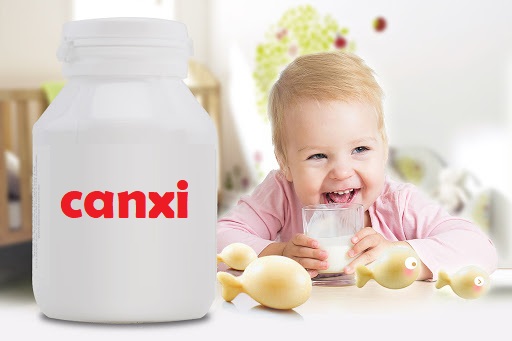Mothers Should Not Neglect Children Who Are Vomiting Milk: Causes and Solutions
5 Reasons Why Babies Spit Up Milk
Physiological Causes of Spit-Up in Children
For infants between the ages of 1 and 2 months, it is important to note that their digestive system is still developing and may be more fragile. The valves in their stomach may not yet function properly, leading to a potential issue of swallowing air while feeding. This can cause discomfort and a feeling of fullness for the baby. Additionally, if the mother places the baby in a prone position after feeding, it is more likely for the baby to spit up milk.
Additionally, overfeeding an infant can lead to indigestion, causing the excess milk to be regurgitated.

Illness Causing Vomiting Among Children Drinking Milk
If your baby regurgitates milk and experiences any of the following symptoms, it is important to be vigilant as it may indicate a medical condition:
-
When a child exhibits persistent regurgitation of milk without sucking or vomits and then sucks, followed by vomiting again after sucking, it is indicative of potential gastrointestinal abnormalities such as esophageal stricture, duodenal stenosis, and more.
- The child may experience symptoms such as sudden vomiting, normal sucking, sudden crying, and abdominal distension, indicating the possibility of gastrointestinal diseases like intestinal obstruction or intussusception. These conditions are commonly observed in children over 3 months of age.
- Children experiencing symptoms such as milk vomiting accompanied by twisting, startling, or convulsions, as well as nighttime crying, may be facing calcium deficiency.

Is Milk Vomiting Dangerous for Children?
Is Spitting Up Milk and Vomiting in Babies Normal?
Occurrence of regurgitation and vomiting is not uncommon during the initial weeks after birth. It is often observed right after feeding or when the baby changes position. The regurgitated milk may appear curdled and can alarm the baby, causing increased crying. Various factors can trigger infant spitting up, including car rides, digestive issues, extended periods of crying, or vigorous coughing.
Regurgitation typically resolves within 6-24 hours without the need for any specific treatment. It is a normal occurrence in infants and as long as your baby is healthy and gaining weight, there is no cause for concern.
What are the Signs that Parents Should Look Out For?
During the initial months postpartum, the occurrence of regurgitation and vomiting may indicate excessive food intake. However, as time passes, it may be caused by a stomach virus. In rare cases, vomiting can also be an indication of an infection in the respiratory system, urinary tract, or even the ear.
If your baby is experiencing regurgitation and vomiting, it is important to seek medical attention, especially if they are older as the condition can become more severe. Look out for these warning signs that indicate a visit to the hospital is necessary:
- Stomach cramps
- Abdominal distention
- Lethargy or excitement
- Convulsions
- Continuous vomiting or vomiting for more than 24 hours
- Dry mouth
- Less tears
- Less urination
- Blue blood or bile

“How to Handle It When Your Child Spits Up or Vomits Milk”
It is common for infants to experience milk regurgitation, which can be attributed to over-feeding, particularly in the case of bottle-feeding. However, if the bottle nipple has a large hole, it is necessary to create a smaller hole to prevent over-feeding and milk leakage.
To detect excess sucking in a baby, it is important to observe their behavior during feeding. One indication of excessive air intake is if the contents of the bottle foam up significantly. It is essential to be mindful of the baby’s airway while using a bottle, ensuring that it is not directly inserted into their throat, as this can lead to spitting.

If a baby is experiencing milk reflux due to calcium deficiency, it is recommended to provide calcium supplements to prevent further instances of milk reflux.
Four Strategies to Prevent Spit-Up and Vomiting in Children
Tips on Keeping Babies Upright and Calm After Feeding
Babies have an underdeveloped digestive system, making it common for them to swallow air during feedings. It is important for mothers to avoid placing their babies in a lying down position immediately after feeding to prevent vomiting.
When it comes to infants who are experiencing milk vomiting, it is imperative to adhere to the fundamental guideline of keeping the baby’s stomach in a downward position. To achieve this, seat yourself with the baby comfortably nestled on your lap, while ensuring their head is gently resting on your chest. It is vital to maintain this posture for approximately 30 minutes post-feeding.

Frequent, Small Feedings for Babies
Compared to older babies, newborns have an underdeveloped digestive system with a smaller capacity. Therefore, it is recommended for mothers to feed their newborns more often, but in smaller quantities, in order to provide enough milk for the baby. This approach can help the baby to digest more efficiently. However, it may present challenges for the mother in terms of frequency of feedings.

Ensuring a Comfortable Sleep Position for your Infant
Babies may experience milk regurgitation, frequent spitting up, or disrupted sleep patterns due to their position on their backs, which lacks the necessary gravitational support to keep food down. However, if your baby continues to sleep well, there may be no need to alter their sleep pattern.

Choose the Right Diapers for Your Baby
To ensure your child’s comfort, it is advisable to dress them in loose and breathable diapers. Avoid changing diapers immediately after feeding, as this may increase the risk of vomiting by placing the child on their back or allowing them to twist during the process.

Altering the Composition of Formula Milk
If your baby is being fed formula, it is recommended to consult with your doctor for guidance on adjusting the formula consistency. Making the formula slightly thicker can help reduce the frequency of baby spitting up.

Exploring the Benefits of Calcium Supplements for Babies
Breast milk, along with symptoms such as vomiting, twisting, and difficulty sleeping every night, can indicate a deficiency in your baby’s daily calcium intake. In such cases, providing sufficient calcium supplementation is the most effective approach to support your baby’s well-being.

Properly Breastfeeding Your Baby
It is recommended for mothers to breastfeed their baby on the left side first and then switch to the right side. This is because the baby’s stomach becomes full of milk and it is beneficial for them to lie on their left side. By following this feeding technique, the milk will be able to flow easily and stay in the baby’s stomach without any reflux issues. In the case of bottle-feeding, it is important for the mother to ensure that the nipple is always filled with milk and to avoid laying the bottle on its side.
It is advised that if a baby cries while breastfeeding, the mother should cease the nursing session promptly. Continuation of suckling during this time may result in excessive air intake, leading to inflated stomach and potential reflux. In addition, parents should exercise caution to prevent excessive laughter in infants, as it can facilitate milk regurgitation.

In order to prevent discomfort for the baby, it is important for the mother not to overfeed the infant. Excessive feeding can lead to stretching of the stomach, ultimately causing the baby to vomit. When introducing a new food to the baby’s diet, it is recommended to start with a minimal portion size and gradually increase it to observe the baby’s tolerance and adaptation.
“By applying the information and experiences shared in the aforementioned article, we sincerely hope that mothers will effectively address and alleviate the issue of milk spitting and vomiting in their children.”
The post https://meo.tips/how-to/mothers-should-not-neglect-children-who-are-vomiting-milk-causes-and-solutions/ appeared first on Meo.tips.
View more from Meo.tips:
How to Accurately and Properly Measure a Thermometer at Home Using 3 Methods“Silent Health Hazard of Taking Night Showers”
Ten Acne-Fighting Home Remedies That Are Proven To Be Safe and Effective
Guide to Post-Epilation Skin Care
Retinol: A Fountain of Youth for Hair, Skin and Acne Prevention
A Guide to Establishing Healthy Beard Care Practices from the Beginning
How to Easily Remove Dead Skin from Your Heels at Home: 2 Proven Solutions
Reinvigorate Lips with Natural Remedies
Know These Tips to Safely and Effectively Remove Makeup with Coconut Oil
Learn How to Keep Your Feet Beautiful and Healthy with Daily Soaks
“Enhancing Your Hands: 5 Simple Steps to Achieve a Beautiful Look”
Risk of Acne May Increase with Increased Fruit Consumption
“Keep Cool in the Heat – 5 Tips for Wearing Perfume in the Summer”
Recipe for Making Strawberry Juice Using a Blender
Cook the Perfect Carrot Soup for Babies That Moms Will Love – Ready in No Time!
More Useful Advice for Homemakers (Part 2)
Preparing Delicious Cakes with a Rice Cooker
Part 3: Helpful Tips for Housewives
7 Steps to Tasty Fish without a Fishy Odor
How to Cook Without Creating Kitchen Chaos: 10 Tips
Comments
Post a Comment